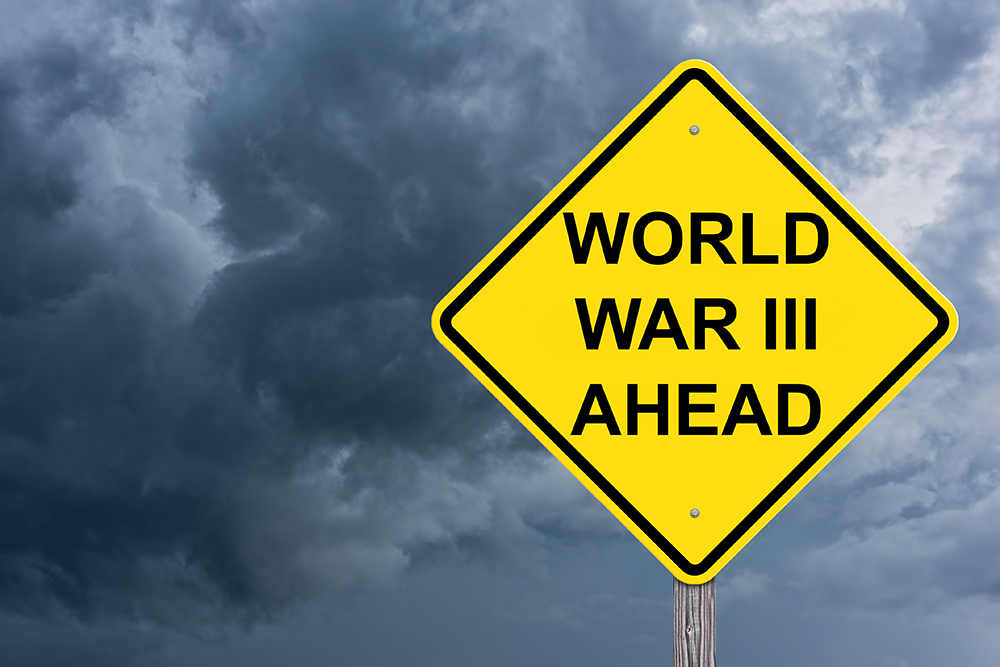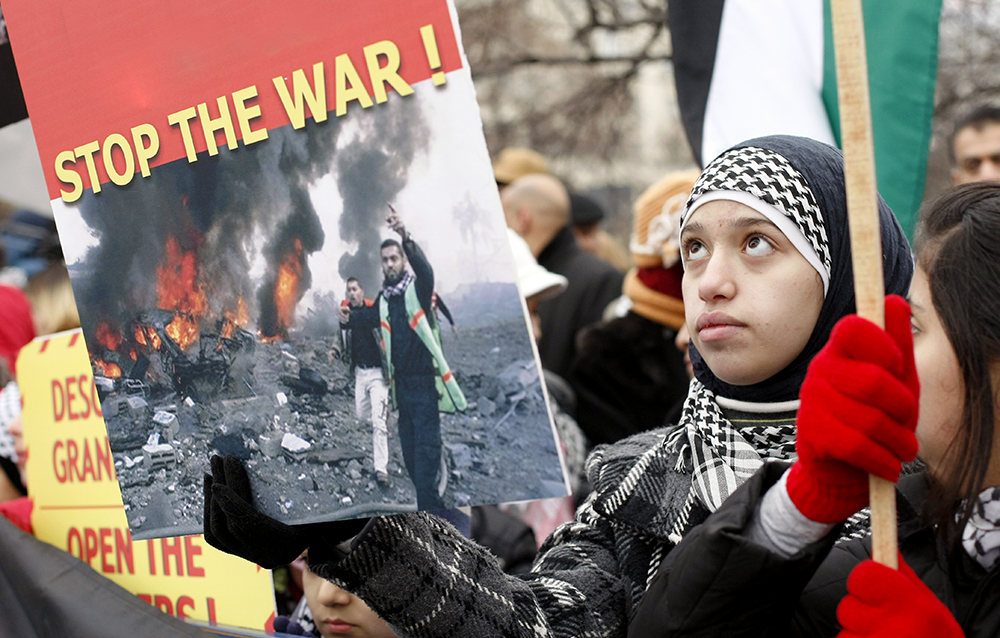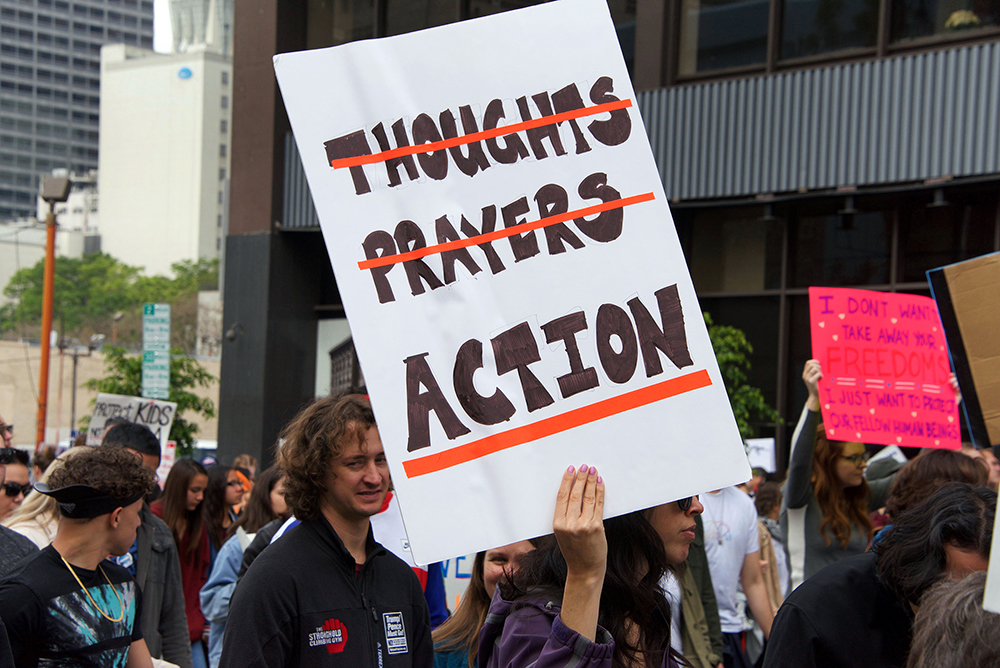“Mr. Netanyahu faces a delicate calculation — how to respond to Iran in order not to look weak, while trying to avoid alienating the Biden administration and other allies already impatient with Israel’s prosecution of the war in Gaza.”
Yeah, this is virtually nothing: a random, utterly forgettable quote pulled from The New York Times — from the basic corporate coverage of our present-moment violence, as the world shimmies on brink of … uh, World War III. It’s the forgettable quotes, especially in regard to ongoing war, that may be the most dangerous because all they do is solidify a collective sense of normalcy. My term for it is “accepted insanity.” We have the technological and psychological capacity to kill not simply thousands or even millions of people but the whole human race, but let’s talk about it in terms of strategy, tactics, and public relations! Let’s talk about it as though we’re covering a bunch of 10-year-old boys throwing stones. Which one’s going to win?
That’s the key issue here: winning. When two cowboys face off in an armed confrontation, the one who draws and fires fastest, hitting the other guy in the stomach or wherever, wins. He gets to walk away with a self-satisfied smirk.
I’m not singling out the Times story quoted above as uniquely problematic in its coverage of the latest turn of events in the Middle East, but rather as representative of the accepted insanity of endless war — the reduction of war to an abstraction, virtually always involving clearly defined good guys and bad guys, and describing murder (including mass murder) as retaliation, self-defense, “show of force,” etc., etc. “National interests” are the prize at stake. Human lives are just bargaining chips, except, of course, when the bad guys kill them.
The Times story, for instance, steps beyond its abstraction of the Israel-Iran confrontation at one point. Israel bombed Iran’s consulate in Damascus, Syria, killing several Iranian officers, the story informs us. Iran retaliated two weeks later, firing 300 drones and missiles at Israel, almost all of which were shot down, and very little damage was caused. The Times notes: “The only serious casualty was a 7-year-old girl, Amina al-Hasoni, who was badly wounded.”
War affects children! Yes, yes, yes it does. My heart goes out to Amina al-Hasoni. But my God — some 13,000 children have been killed in the Israeli assault on Gaza, and thousands more injured, not to mention orphaned. And some are simply missing, lying under the rubble. What are their names?
What if war were covered the way street crime is covered — not as an abstraction, but with awareness that it’s a profound social problem? What if war were covered with external awareness, i.e. with wisdom that transcends political platitudes — rather than in obeisance to those platitudes?
Here, for instance, is CNBC reporting on the Israel-Iran confrontation. Noting that Israel has pledged to “exact a price” from Iran in response to the missile attack, CNBC then quotes President Biden condemning the attack and adding that the United States “will remain vigilant to all threats and will not hesitate to take all necessary action to protect our people.”
Can you believe that his words didn’t make me feel safer? I’d been pondering not just the possibility but the likely reality of World War III, and to read these words — “take all necessary action to protect our people” — made the wolves start to howl in my own soul.
Platitudes plus nukes? Biden wasn’t talking about transcending war and shunning the country’s trillion-dollar military budget. Presumably, he was talking about using it, putting it to work to “protect” us — you know, to “defeat” our declared enemy (Iran, apparently), no matter the price exacted on Planet Earth, including on you and me. How about some media coverage that doesn’t blow this off with a shrug?
Coverage of war requires awareness of the lies that prop it up politically. For instance, as World Beyond War has put it: “According to myth, war is ‘natural.’ Yet a great deal of conditioning is needed to prepare most people to take part in war, and a great deal of mental suffering is common among those who have taken part.”
In other words, war is not a product of human evolution — humanity finally becoming mature enough to fight itself in an organized, collective fashion — but essentially the opposite of that: an unevolved aspect of who we are … an embedded failure to evolve, you might say.
So many veterans, as the World Beyond War quote implies, often bear the burden of this truth well beyond their time of service. They are forced to face, on their own, the psychological and spiritual implications of what they did — of following orders, of participating in the dehumanization and murder of alleged enemies. In the wake of wars, vet suicide rates can be horrific. While such psycho-spiritual trauma is officially defined as a mental illness — post-traumatic stress disorder (PTSD) — others with deeper understanding, including many vets, call it moral injury. Following orders forced them to act beyond their own humanity: When you dehumanize others, you dehumanize yourself.
This is the accepted insanity the corporate media cover with such win-lose abstraction, even when we’re on the brink of World War III. Multiply moral injury by several billion human beings and what you could wind up with is human extinction.
Robert Koehler (koehlercw@gmail.com), syndicated by PeaceVoice, is a Chicago award-winning journalist and editor. He is the author of Courage Grows Strong at the Wound, and his newly released album of recorded poetry and art work, Soul Fragments.




